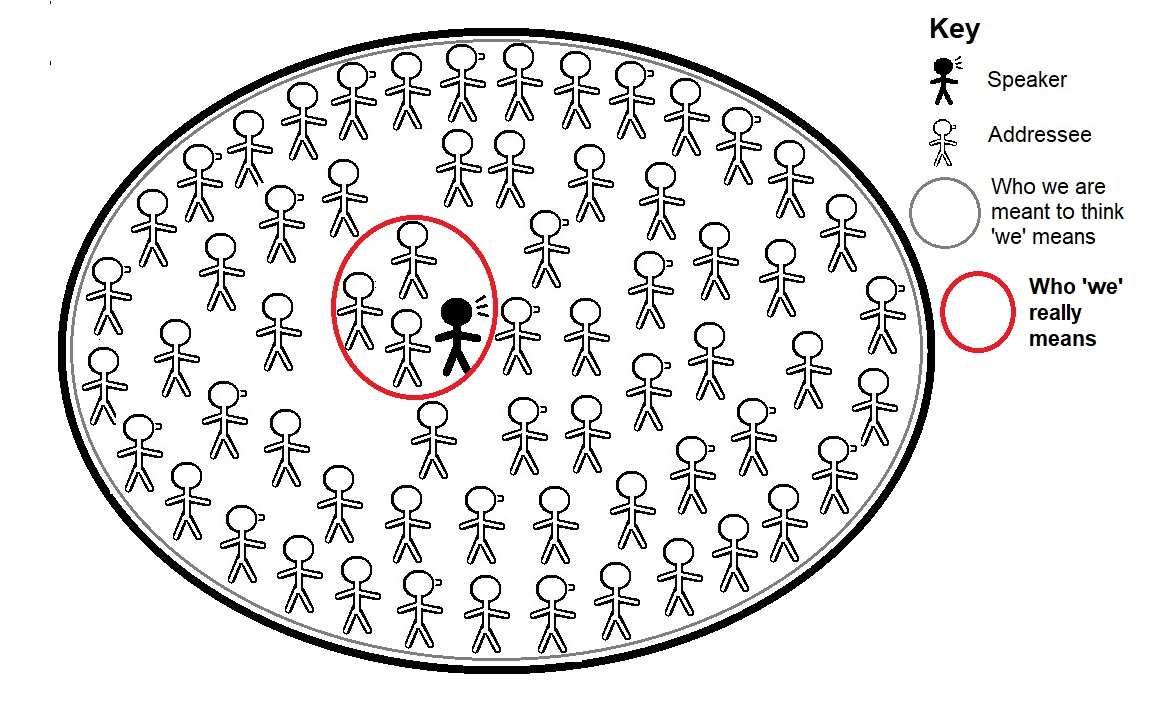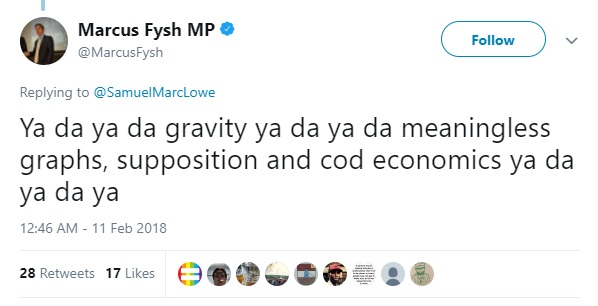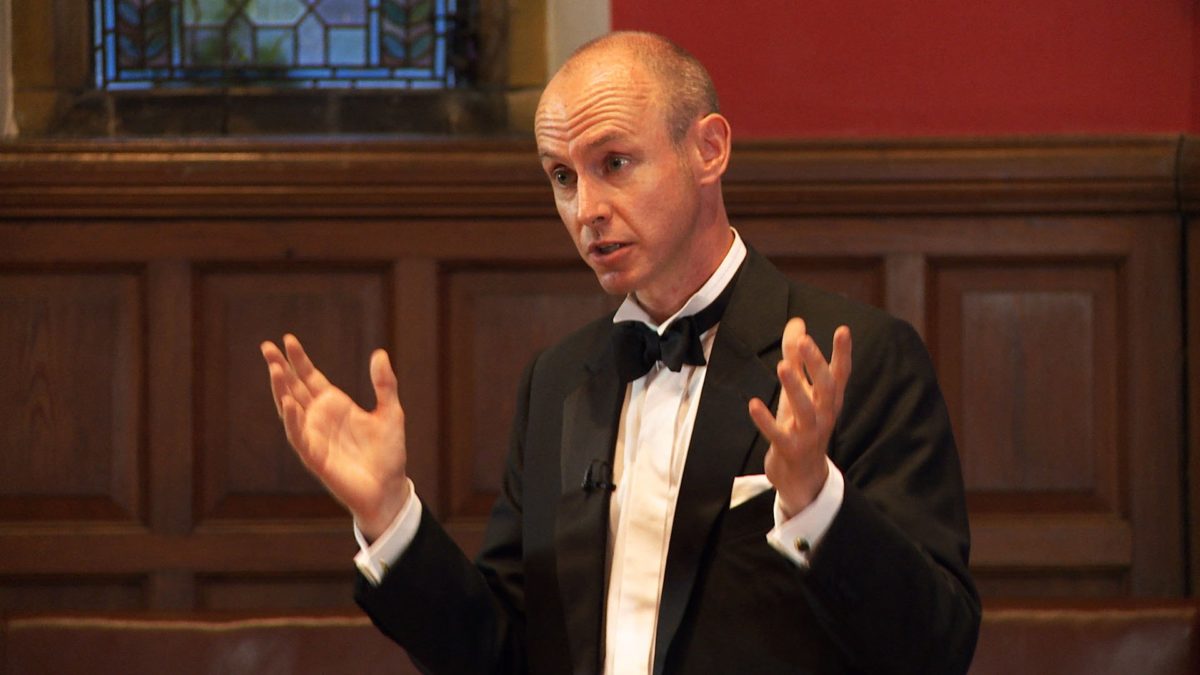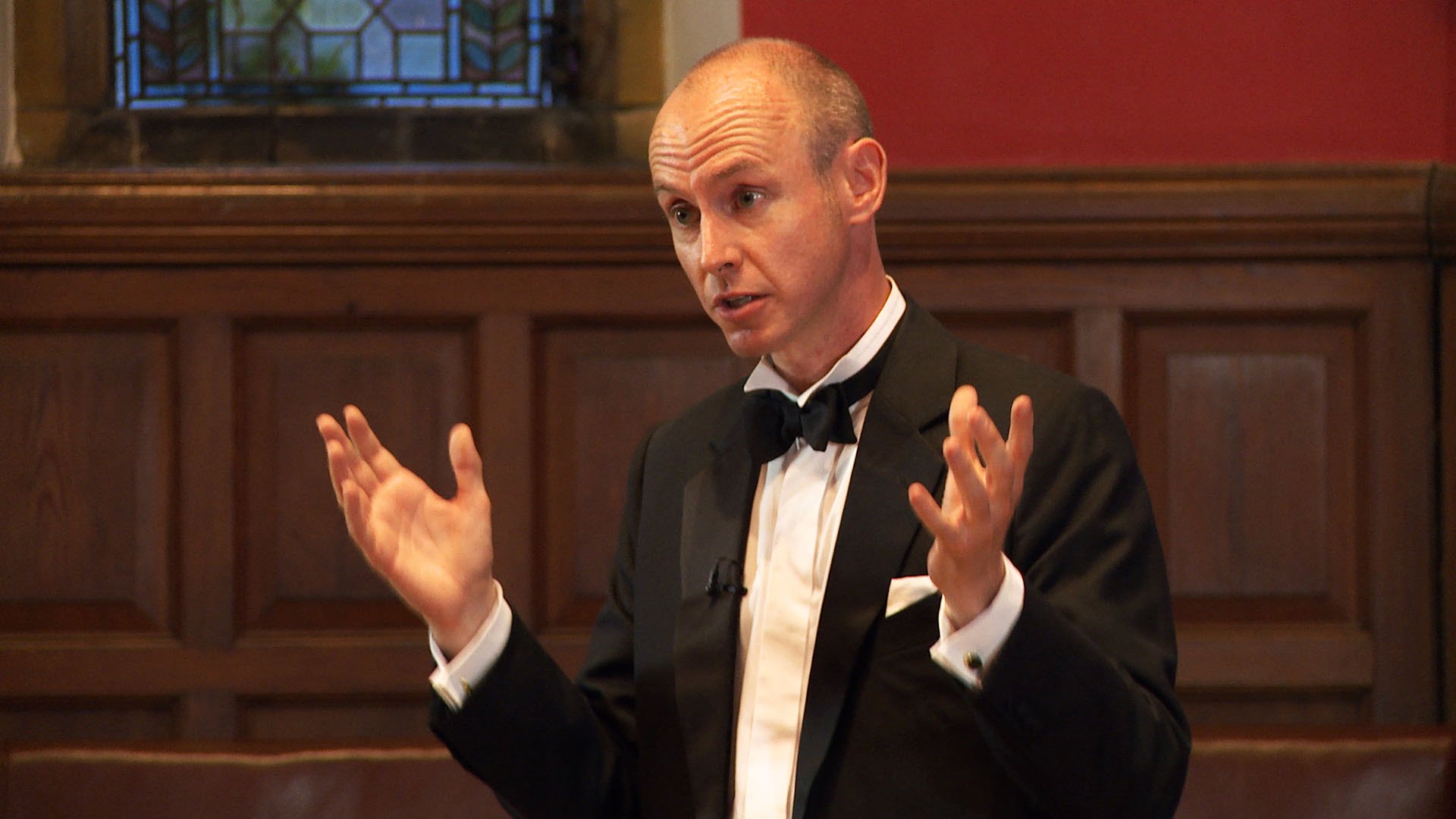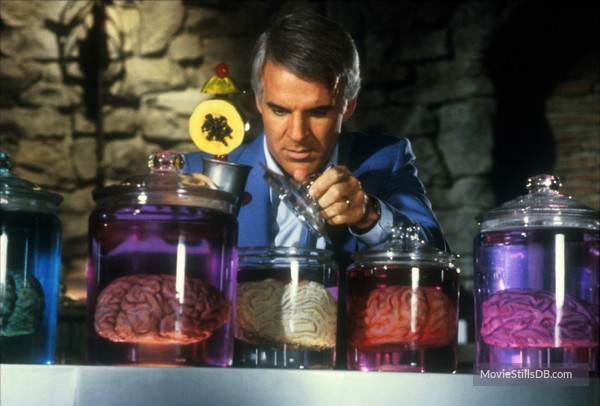
Every pedant has a pet hate. Whether it’s Oxford commas, Americanisms, lost participles or absent apostrophes, every armchair grammarian has one particular slip that grinds their gears. Several leagues clear at the top of my shit list is “with”.
Firefighters are battling to contain a massive blaze moving “like lightning” on the outskirts of Athens, with authorities evacuating people from towns, villages and hospitals as flames rip through trees, homes and cars.
OK, you say, it might not be exactly how I would have phrased it, but it hardly merits a pop-eyed 2,000-word blog post. Does it?
Well, let’s take a look at what’s going on here. The writer of the offending passage is trying to convey two pieces of information in one sentence. One, that firefighters are tackling a serious wildfire near Athens; two, that people have been evacuated from the area. So they’ve written two separate clauses, and joined them. With “with”.
Now English has a class of words designed to perform exactly this function. They’re called conjunctions. You know: “and”, “but”, “when”, “because”, and all those other linking words. My problem is that “with” does not fucking number among them.
In any dictionary you care to check, “with” is listed as a preposition: a word that shows direction, location, or time, or some similar figurative sense. Off my rocker. Up the wall. At my wits’ end. Even when erroneously pressed into service as above, with is still a preposition. You can tell because it still wants to behave like one.
The Austrians urged their EU counterparts to continue the effort to stamp out the tragedy in the Mediterranean, with more than 2,000 people suffocating or drowning last year.
While conjunctions will happily segue into full clauses (I read the paper and my jaw dropped), prepositions can only take nouns* as an object. That’s why the verbs in the sentences above suddenly have -ing at the end: the writer has, probably without realising, had to turn “suffocate” and “drown” into participles — verbs that act as adjectives by modifying the preceding noun — in order to meet the grammatical demands of “with”.
(*Technically noun phrases, but now is not the time to get bogged down in technicallies.)
Even so, my imagined detractors cry, this is hardly the most heinous of crimes. Why should we care?
For five reasons.
1) Eww
Rowley became commissioner in September 2022, having retired in 2018 after a career in several forces, with him first joining the Met in 2011 as an assistant commissioner.
This reporter has tried to squeeze three pieces of related information into one sentence, which is a perfectly respectable and achievable aim, but sheesh, couldn’t they have done so with a little panache?
As well as the usual grammatical contortions, they’ve ended up with three different verb forms and had to refer to the subject twice in the space of a few words (“Rowley” and “him”). Wouldn’t something like this be simpler and clearer?
Rowley became commissioner in September 2022, having joined the Met in 2011 as assistant commissioner, served in several forces, and retired in 2018.
2) Huh?
The prime minister has already pledged to establish closer ties with the EU, with the new minister for European relations, Nick Thomas-Symonds, travelling to Brussels for an introductory meeting with Brexit negotiator Maros Sefcovic on Monday.
This article was published on a Friday. The grammatical whims of “with” have denied us some important information: the tense of the subordinate clause. Did Thomas-Symonds go to Brussels last Monday, or is he going next Monday?
> Following the prime minister’s pledge to establish closer ties with the EU, the new minister for European relations, Nick Thomas-Symonds, will travel to Brussels for an introductory meeting with Brexit negotiator Maros Sefcovic on Monday.
3) Shrug
Holly Willoughby leaves ITV with questions to answer over Phillip Schofield lying
Hold on. Does Holly Willoughby have questions to answer? Does ITV? Or are these questions anyone can take? Has some action by Holly Willoughby led to questions being asked of ITV? A year later, I’m still not 100% sure what this Sunday Times headline was getting at.
With is a busy little word bee. Even though it’s only a preposition and not a fucking conjunction, it’s the 15th most commonly used word in the English language (according to the Oxford English Corpus) and the OED lists 96 separate meanings for it.
These myriad functions are already a common cause of confusion; consider the sentence “I shot with the man with the gun”, and why this regular column in the Guardian is the only one that has a comma.

With is already buckling under the strain of its multiple duties. Surely it makes no sense to add to them?
4) Grrr
One of the oddest things about this linguistic oddity is that it’s almost entirely unique to journalists. Barring a few instances that have leaked into the real world, you’ll never find “with” moonlighting as a conjunction in novels or poems or everyday speech.
There’s a word for language that’s unique to one class of people: jargon. Jargon marks out a group as special and, whether intentionally or not, alienates non-members. Which is fine when that group are specialists, like engineers or soldiers or gamers, talking mostly among themselves.
But journalism is all about conveying information to the wider world. It should be intelligible to as many people as possible. To use forms that are alien to the reader is to throw up walls in an arena that should be wall-less.
(The phenomenon may, incidentally, have been born from good intentions. Because the best reporting is neutral, eschewing value judgments, loaded terms and assumptions of guilt and causation, and because exact sequences of events are not always immediately known, it’s not always appropriate to use more specific connectors like “because” or “after”. This leaves us with bland old “and”, which can quickly become repetitive.)
5) Aaarrrrgghhhhh
If “with” was occasionally being wheeled out in an innocuous attempt to stave off monotony, then yes, I’d still be swearing, just not publicly.
But it’s everywhere. You’ll struggle to find a news (or especially business or media) story without at least one conscripted “with”. While subediting, I’ve come across as many as three in one paragraph. Sometimes it feels as if “and” has become an ex-conjunction.
Fortunately, other connectors are available.
Sometimes the meaningful conjunctions, like when, because or amid, are perfectly fine. Sometimes a pronoun like “which” or “who” will do the trick. Simply dropping the “with” and running with the participial form is another option, as are semicolons and full stops.
There will no doubt be some diehard descriptivists out there who can reel off a string of sentences by giants of literature using “with” as a fucking conjunction. All I have to say to you is: they could have done better.
Here are some examples I’ve come across in recent years, and suggested improvements.
The rear door of a restaurant in Ormeau Road was also kicked in, with racial slurs shouted at the workers inside.
> The rear door of a restaurant in Ormeau Road was also kicked in, and racial slurs were shouted at the workers inside.
As of Saturday, 779 people had been arrested in connection with the riots, with 349 of those charged, according to the National Police Chiefs’ Council.
> As of Saturday, 779 people had been arrested in connection with the riots, 349 of whom had been charged, according to the National Police Chiefs’ Council.
The tone was set by Boris Johnson, with the British prime minister opening the Cop26 talks with a stark warning …
Oh, come on.
> The tone was set by Boris Johnson, who opened the Cop26 talks with a stark warning …
The left-back was a free agent after leaving Tottenham, with the north Londoners having paid around £25m to buy him from Fulham in 2019.
> The left-back was a free agent after leaving Tottenham, who had paid Fulham around £25m for him in 2019.
ONS data showed a strong performance in the second quarter, with the service sector helping drive growth.
> ONS data showed a strong performance in the second quarter, driven partly by the service sector.
The EPC is designed to facilitate the strengthening of ties between EU and non-EU leaders in an informal setting, with previous conferences held in Spain, Moldova and the Czech Republic.
> The EPC, which has previously held conferences in Spain, Moldova and the Czech Republic, is designed to facilitate the strengthening of ties between EU and non-EU leaders in an informal setting.
With brands the driving force behind the industry’s growth, they account for £1bn of sales and 2.5bn bottles.
> Brands are the driving force behind the industry’s growth, accounting for £1bn of sales and 2.5bn bottles.
Sales of no- and low-alcohol beer are seeing a summer surge, with brewers boosting production to meet growing demand.
> Brewers are boosting production of no- and low-alcohol beer after a summer surge in sales.
Freer’s comments come 10 years after the Marriage (Same Sex Couples) Act achieved royal assent on 17 July 2013, allowing same-sex couples to marry and convert civil partnerships into marriage, with Freer converting his civil partnership with Angelo Crolla to marriage in 2015.
> Freer’s comments come 10 years after the Marriage Act, which allows same-sex couples to marry and convert civil partnerships into marriage, achieved royal assent on 17 July 2013. Freer converted his civil partnership with Angelo Crolla to marriage in 2015.
Ministers have said they want to tighten the law on glorifying terrorism, with the conduct of a minority of people on the pro-Palestine demonstrations in recent weeks, including the chanting of the controversial slogan “From the river to the sea, Palestine will be free”, prompted pledges of change.
(Here, it’s been so long since “with” wrote its unwieldy grammar cheque, the reporter’s forgotten to cash it.)
> Ministers have said they want to tighten the law on glorifying terrorism, a pledge prompted by the conduct of a minority of people …
The typical London rent also hit a new high of £2,633, with average costs in the capital now 5.3% higher than 12 months earlier.
The cack-handed use of “with” here has forced the writer to use not just London and a synonym for London in the same sentence, but also typical rent and a synonym for typical rent! Isn’t “Average London rents hit a new high of £2,600, 5.3% higher than 12 months earlier” less annoying to read?
A desert planet is also featured prominently, with comparisons between Tattooine and Arrakis able to be drawn thanks to their basic geography.
> Tattooine and Arrakis are both desert planets.
The majority of reviewers gave Dune: Part Two a 10-star rating, with only five reviews ranking it below five stars, with many complimenting its blend of “visual splendor and narrative depth.”
> I’m actually shaking too much to attempt this one.
The cost of borrowing has soared in the past two years with retail businesses finding it particularly difficult to raise debt amid concerns about consumer spending amid a surge in the cost of essentials such as food and energy bills.
> [bleep] [bleep] [bleep] [bleep] [bleeeeeeeeeeep]
The mountainness of this molehill is not so much that “with” as a clause connector is flat out wrong and should never be allowed — although it is, and it shouldn’t, because it’s not a fucking conjunction — but that it’s clumsy and lazy and vague, that it’s already doing more than its fair share of jobs in English, and that there are countless ways of producing the same effect with none of these drawbacks.
Language changes! some will say. Keep up, you old duffer! Well, yes, it does, but the changes that stick are generally for the better, offering some nuance or functionality that wasn’t there before. This one blows from every angle.
Journalists: dispense with ‘with’ with immediate effect
The number of people obtaining their news from decent news sites is falling off a cliff. Moreover, their visits are getting shorter; the average time spent reading a news article on the Guardian website (and, I’m sure, on all the others) is less than a minute.
The reasons mooted for this include increased competition and dwindling attention spans driven by instant-gratification culture. But I propose a further cause: a drop in quality.
To an extent, this was bound to happen. Newspapers have far fewer resources than they used to, having lost much of their advertising revenue to the internet, and the all-consuming need for speed means there’s less time for primping. But lazy, confusing, repetitive, cut-and-paste prose is not the magic bullet that will bring the readers swarming back.




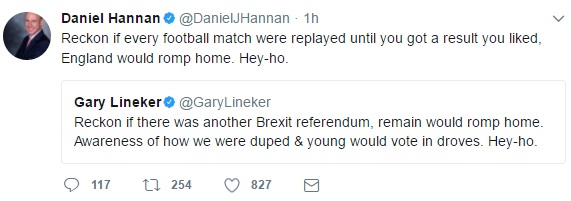
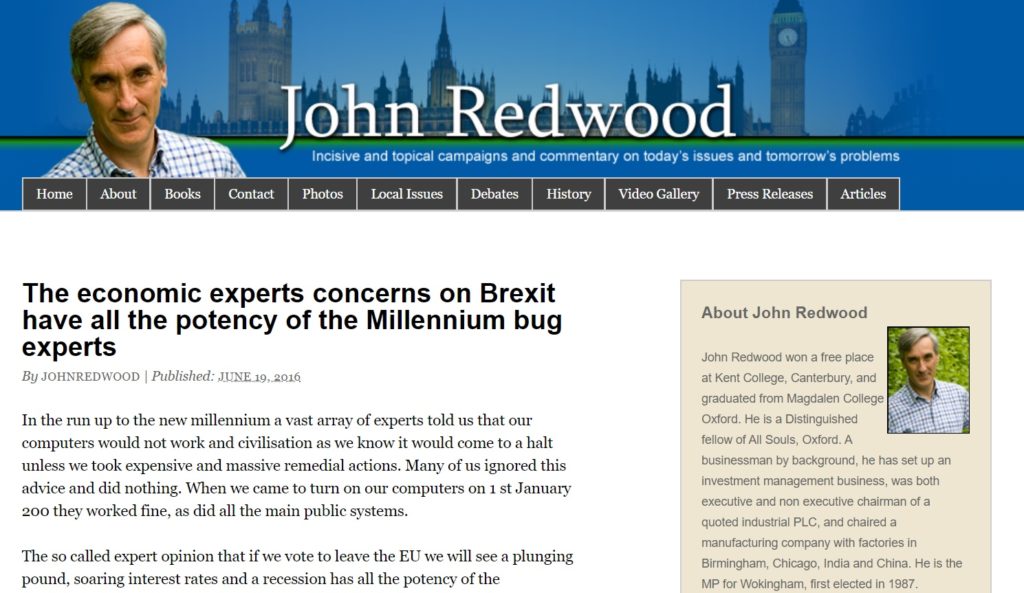
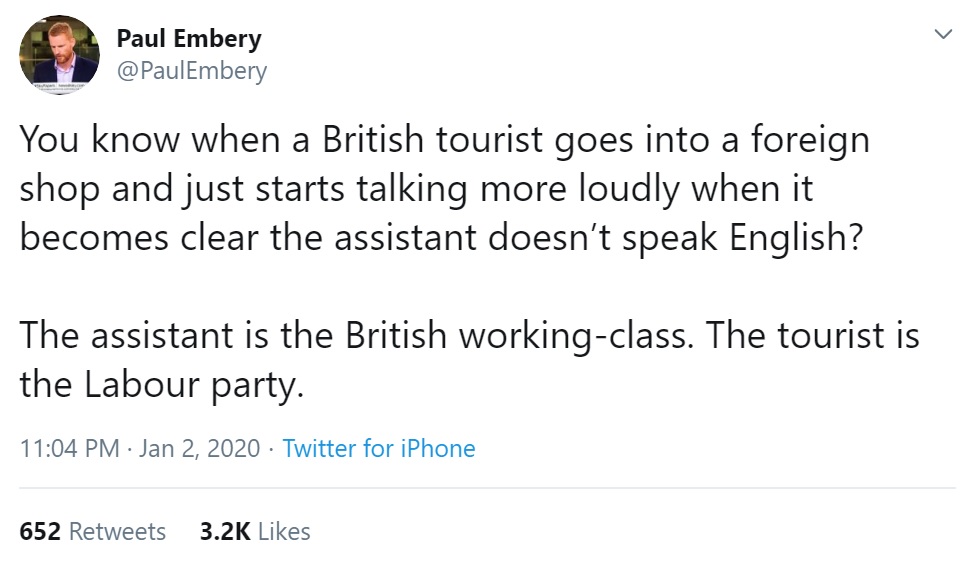


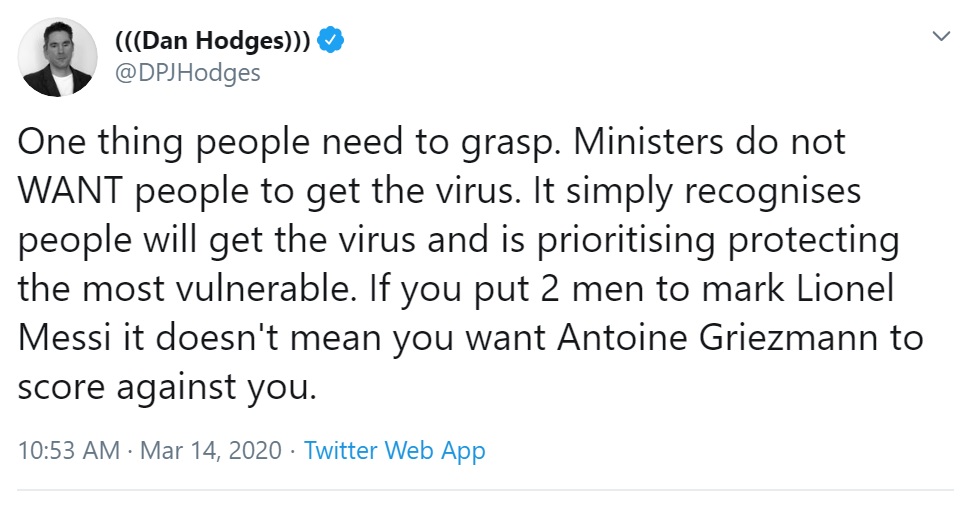
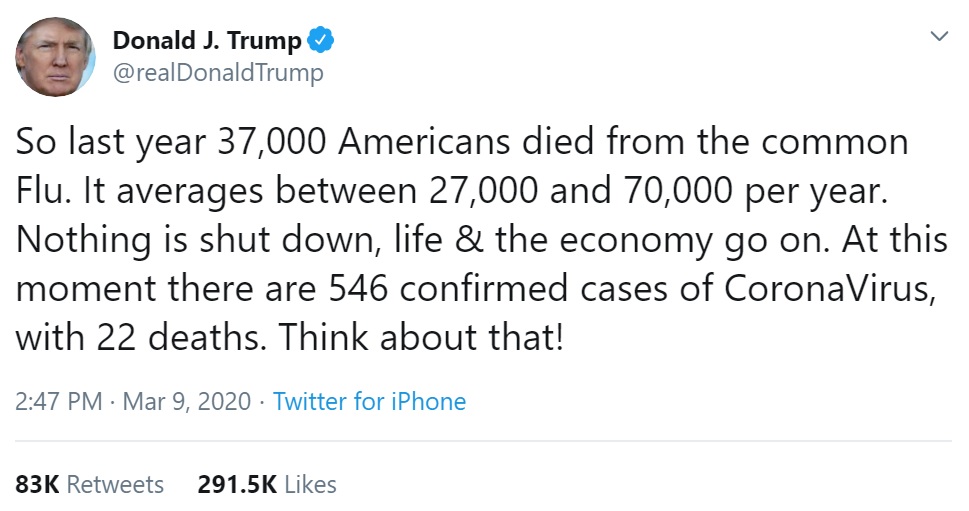
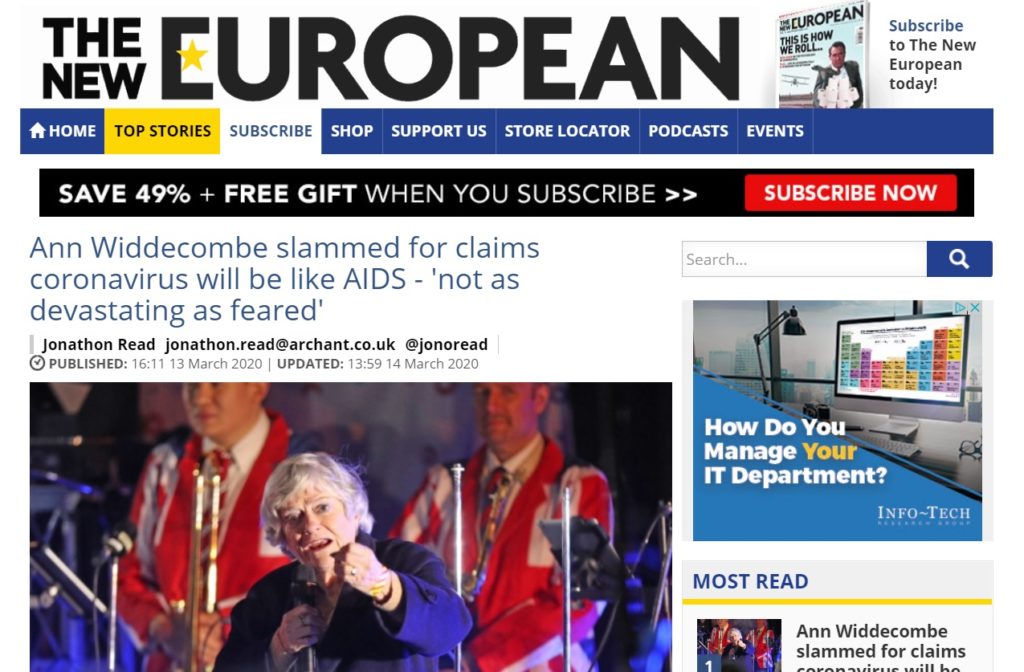

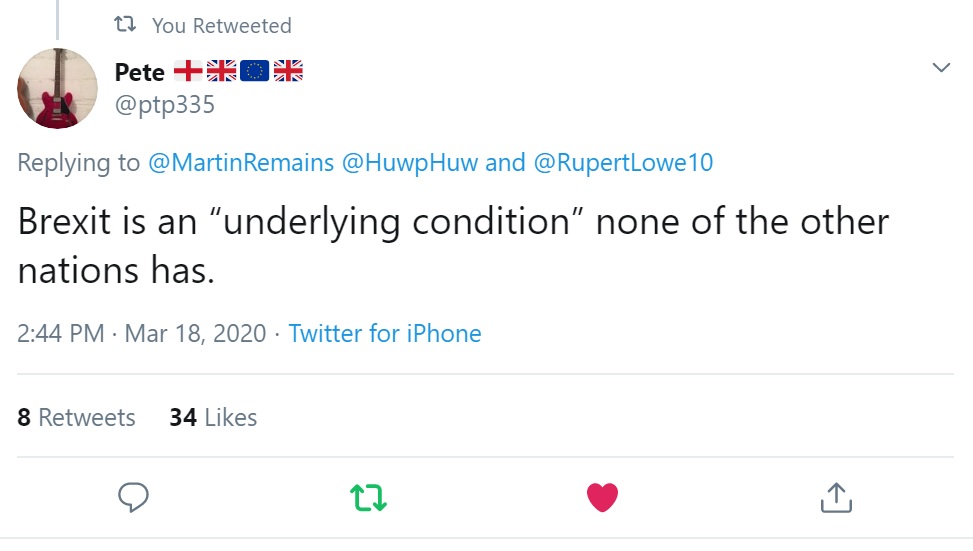
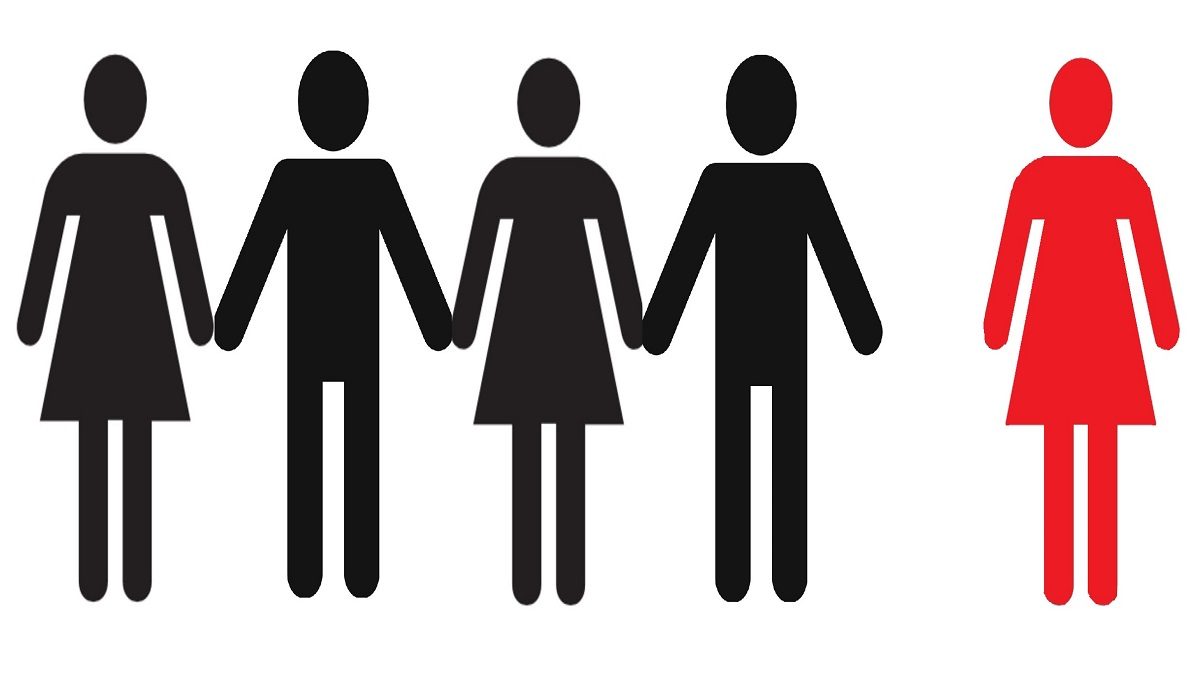
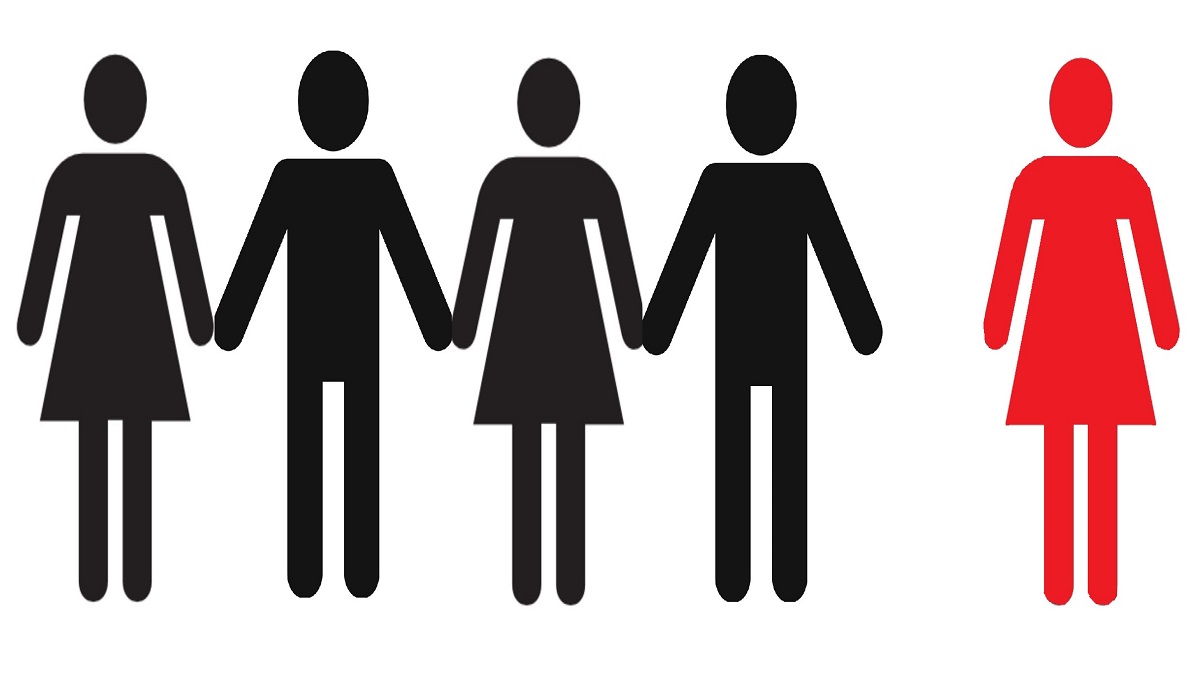 A world without pronouns would be a tedious one. “Bryan Fielding was an ordinary man. Bryan Fielding did not think of Bryan Fielding as an ordinary man, but Bryan Fielding most certainly was.” Pronouns save us time by avoiding the need to spell out the objects of our utterances in full at every mention.
A world without pronouns would be a tedious one. “Bryan Fielding was an ordinary man. Bryan Fielding did not think of Bryan Fielding as an ordinary man, but Bryan Fielding most certainly was.” Pronouns save us time by avoiding the need to spell out the objects of our utterances in full at every mention.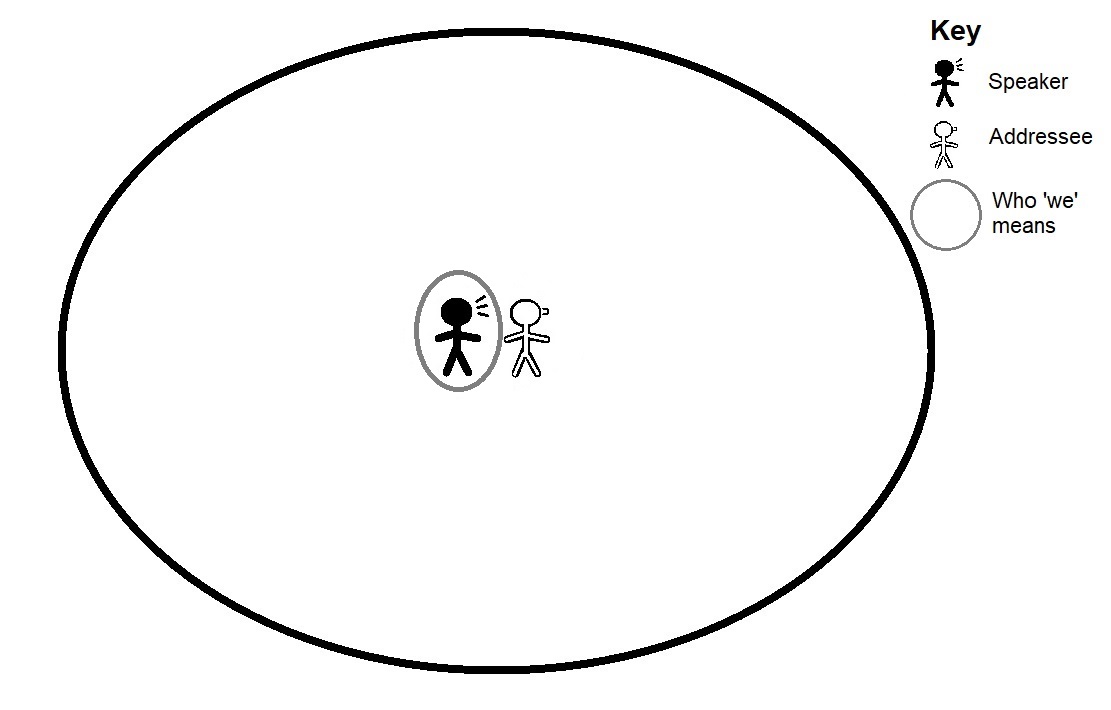
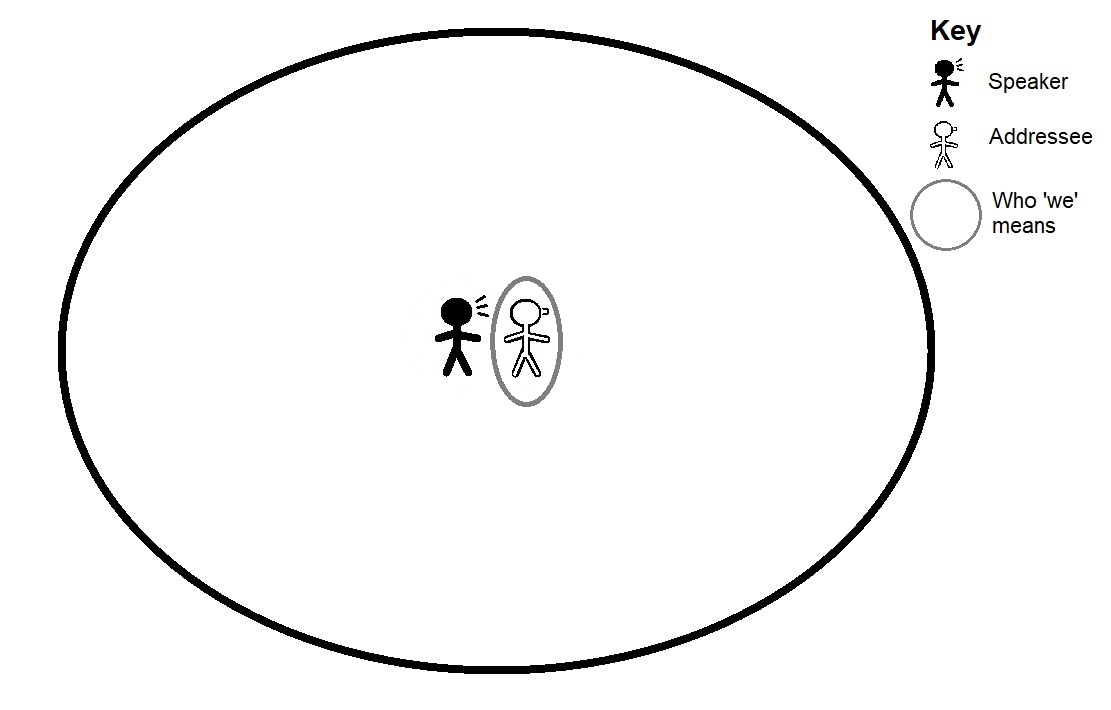
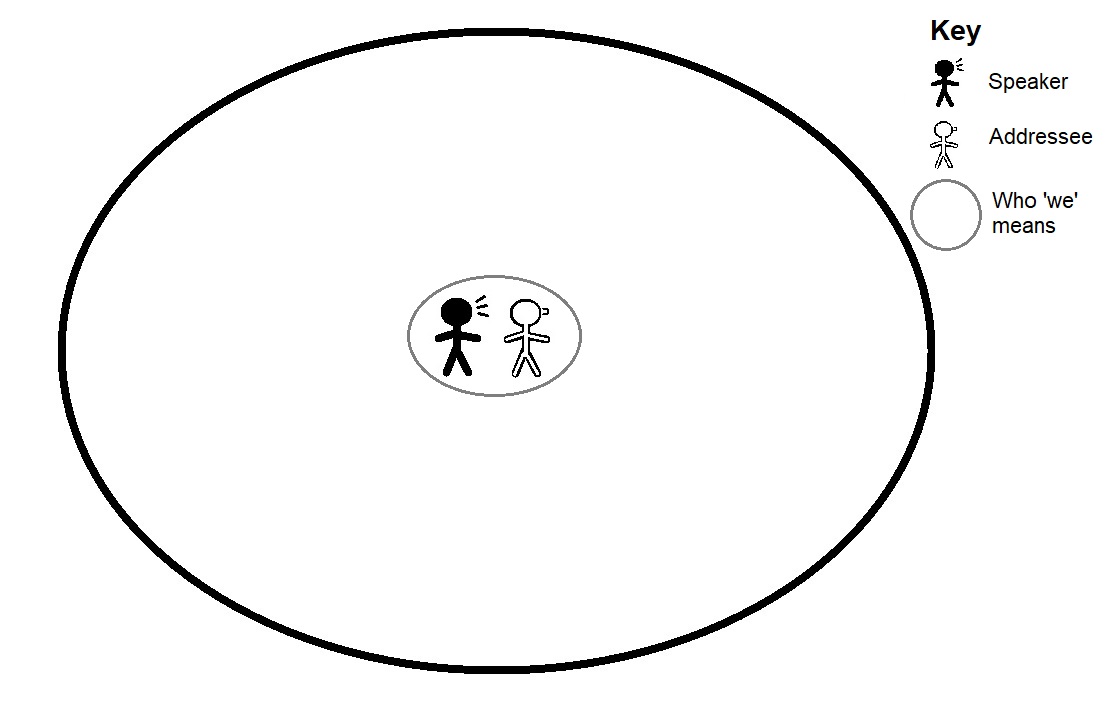
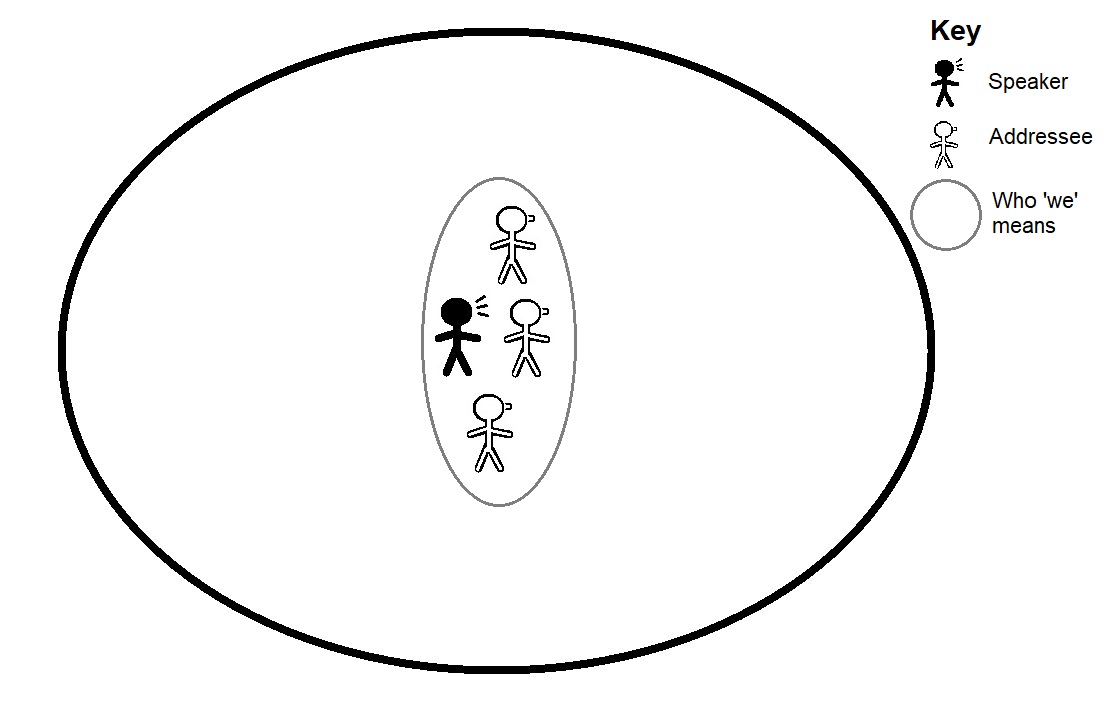
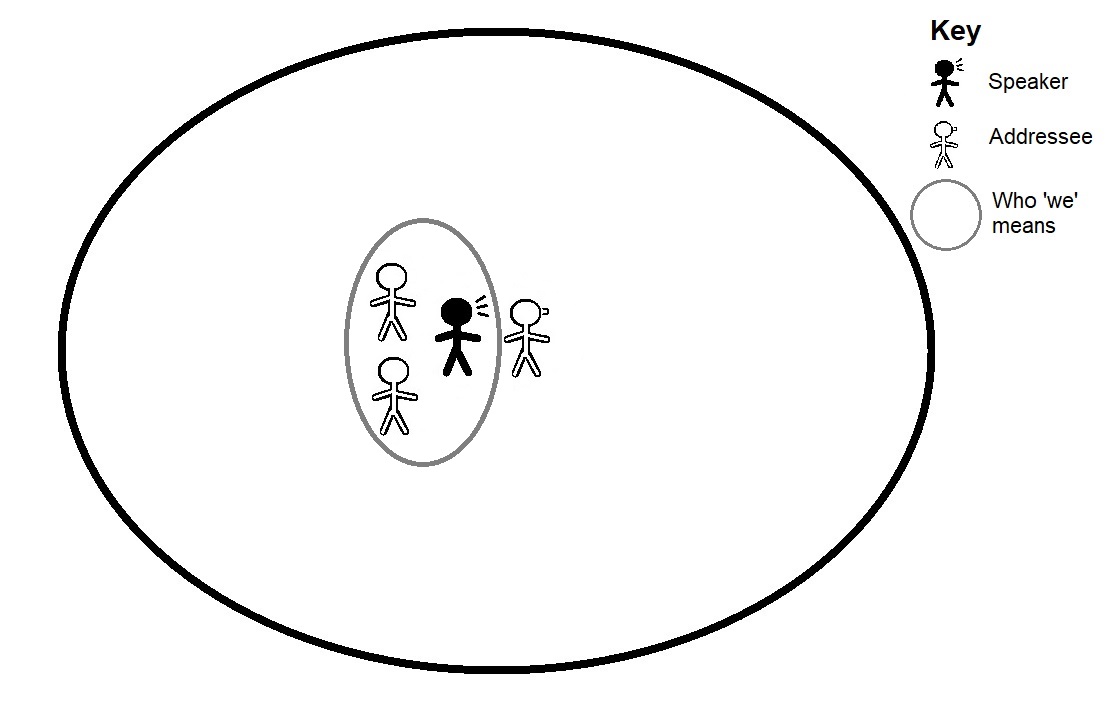
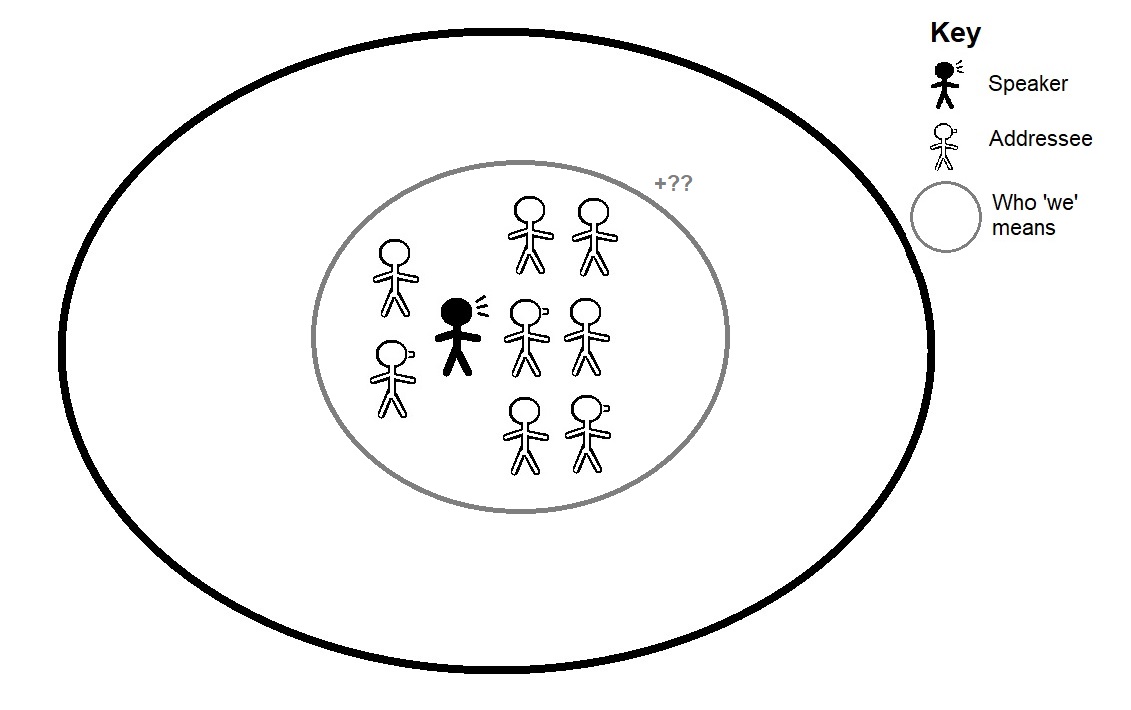
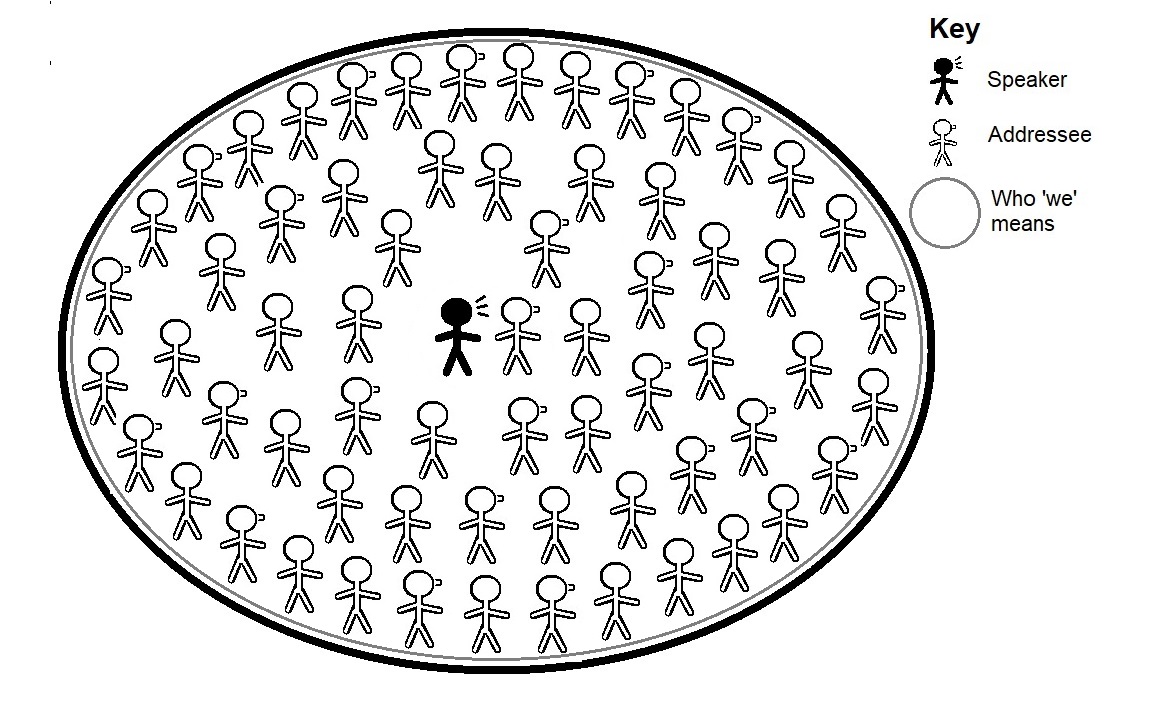
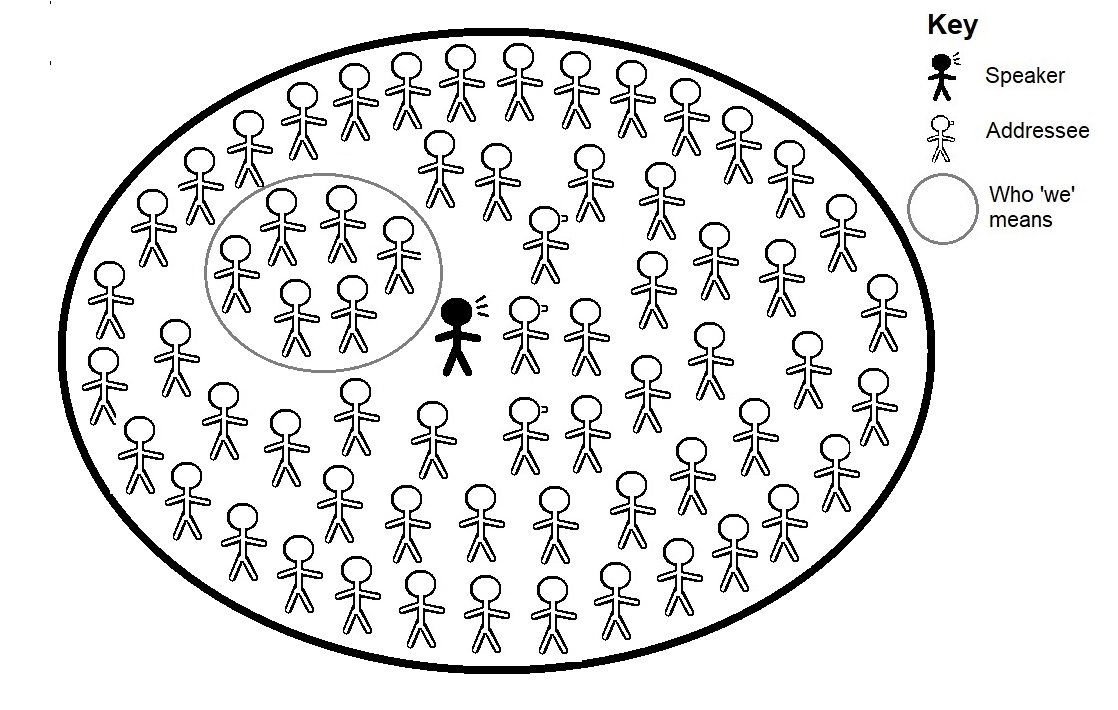 In the above cases, the referents of “we” are generally very clear (while the first two cases are a little odd, they are agreed by longstanding convention). There’s no potential disparity between who they actually mean when they say “we” and who you understand them to mean.
In the above cases, the referents of “we” are generally very clear (while the first two cases are a little odd, they are agreed by longstanding convention). There’s no potential disparity between who they actually mean when they say “we” and who you understand them to mean.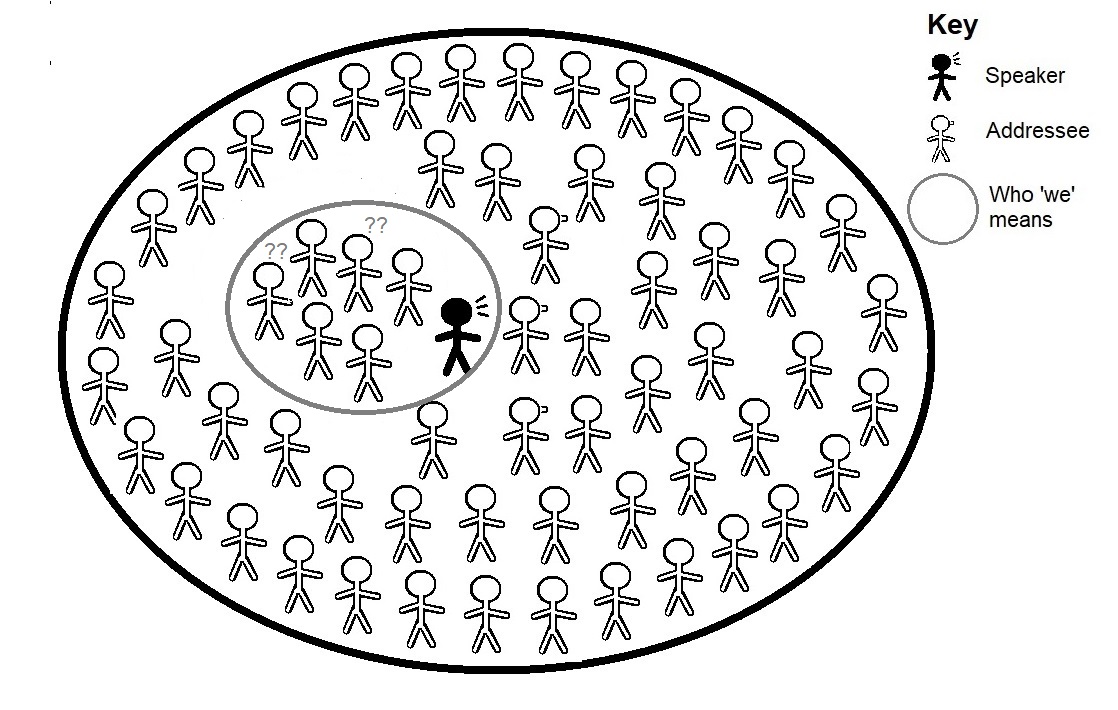 The speaker presumes to speak on behalf of all members of a group, when in fact their view may not be universal or even widespread.
The speaker presumes to speak on behalf of all members of a group, when in fact their view may not be universal or even widespread.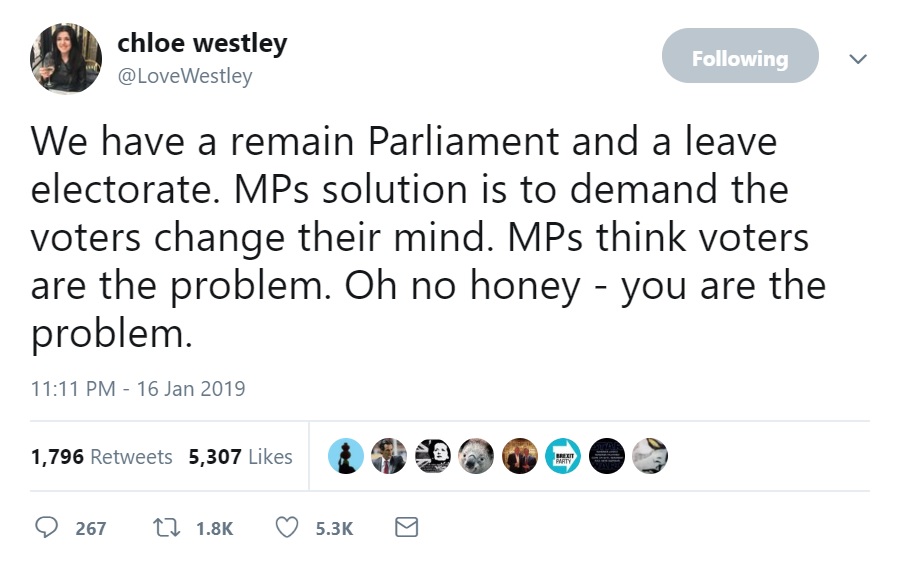
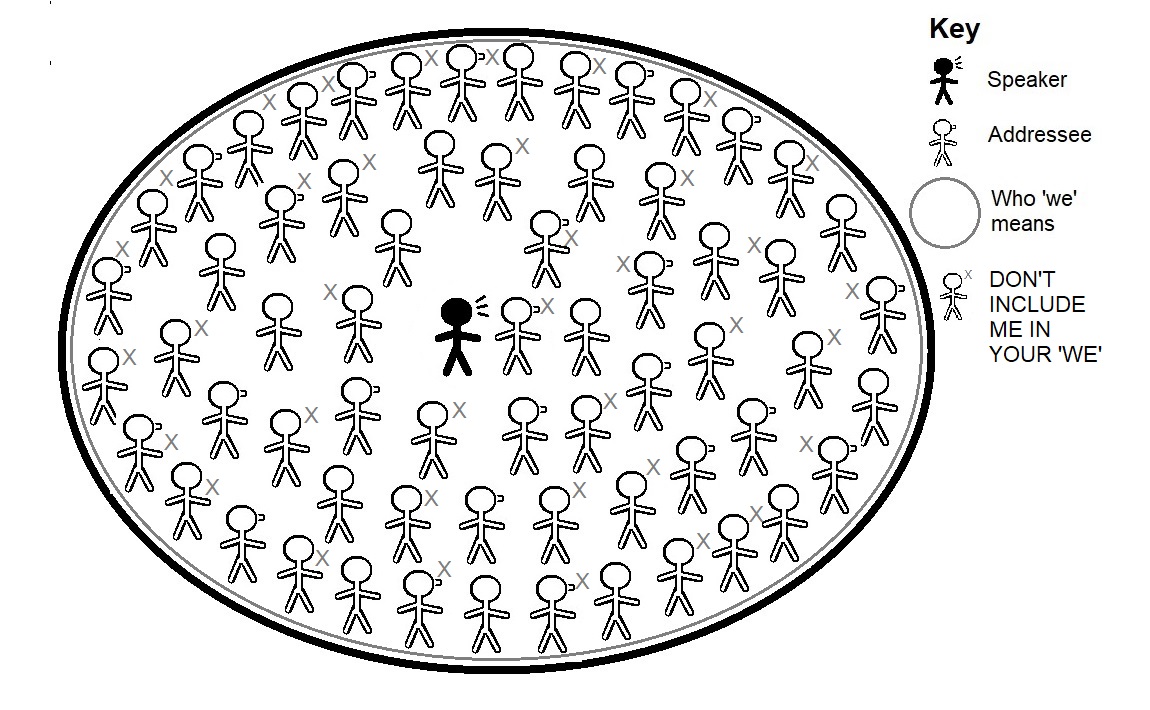 An intimidatory “we” similar to No 10, and a favoured tool of the Brexit voter. There’s a huge and important disjunction here between who the speaker intends us to picture, and who they actually mean. In this case, the intent is to give the impression that the United Kingdom voted as one unit to leave the European Union, when in reality, only 17.4 million people, or 26% of the population, did.
An intimidatory “we” similar to No 10, and a favoured tool of the Brexit voter. There’s a huge and important disjunction here between who the speaker intends us to picture, and who they actually mean. In this case, the intent is to give the impression that the United Kingdom voted as one unit to leave the European Union, when in reality, only 17.4 million people, or 26% of the population, did.